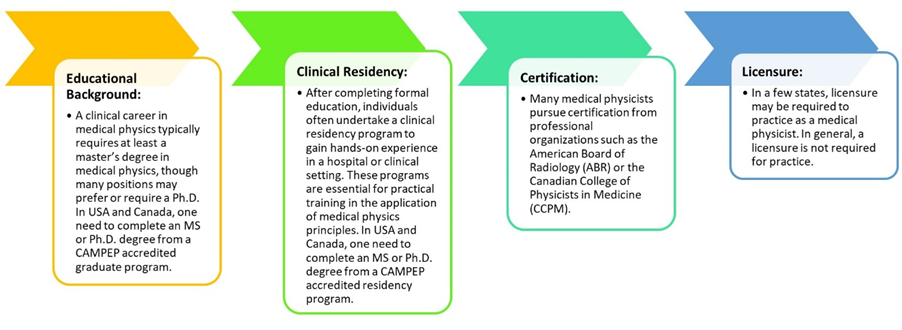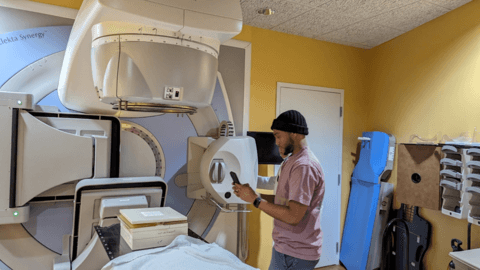What is Medical Physics?
Envision a field where the principles of physics intersect the world of healthcare, creating a specialized realm known as Medical Physics. Making sure that medical devices and therapies are both safe and effective is the main focus of this intriguing profession. Now, let's take a closer look at what a medical physicist does.
First of all, medical physicists are like guardians of radiation. When you get an X-ray or undergo treatments like radiation therapy for cancer, ‘someone’ makes sure that the amount of radiation you're exposed to is just right—enough to do the job without causing any harm. Medical physicists are often referred to as the 'backroom boys' of healthcare. These unsung heroes work behind the scenes, using their expertise in physics to ensure the smooth and safe operation of medical technologies. From calibrating and testing equipment to guaranteeing the precision of radiation therapy, they play a crucial role in the accuracy of diagnostic procedures and treatments.
But their work doesn't stop there. Have you ever wondered how those amazing medical devices, such as CT, MRI, and PET scanners, provide such precise images of the inside of our bodies? The wizards behind the scenes are medical physicists, who develop computer algorithms, test and calibrate these instruments to guarantee reliable results. They are the hospital's high-tech equipment quality control team.
Imagine now a patient receiving radiation treatment for cancer. It requires accuracy rather than just zapping away the harmful cells. In order to target cancer cells while sparing healthy tissues, medical physicists must calculate the ideal radiation dosage, which is a critical part of therapy planning. It's a bit like orchestrating a delicate dance between science and medicine.
Not only that, but certain medical physicists are pioneers in the field of healthcare exploration. They conduct research and develop new designs, stretching the envelope of what is conceivable. They aid in the development of advancements in cancer treatments, medical imaging, and other fields. See - https://www.aapm.org/students/prospective.asp
Medical Physics field involves applying the principles of physics to medicine, by operating at the intersection of academia and clinical sciences. The medical physicists possess a comprehensive understanding of the physical principles underlying medical devices. Their education and training equip them to troubleshoot and provide expertise, ensuring the safe and effective utilization of advanced medical technologies, thereby contributing to improved patient care. The MS in medical physics at Howard is one such unique program, being the only program at an HBCU.
For more information visit American Association of Physicists in Medicine (AAPM) web site on roles and responsibilities of a medical physicist https://w3.aapm.org/medical_physicist/index.php; also some helpful contents at International Atomic Energy Agency (IAEA) https://humanhealth.iaea.org/HHW/MedicalPhysics/TheMedicalPhysicist/index.html
Pathway to Clinical Physics


